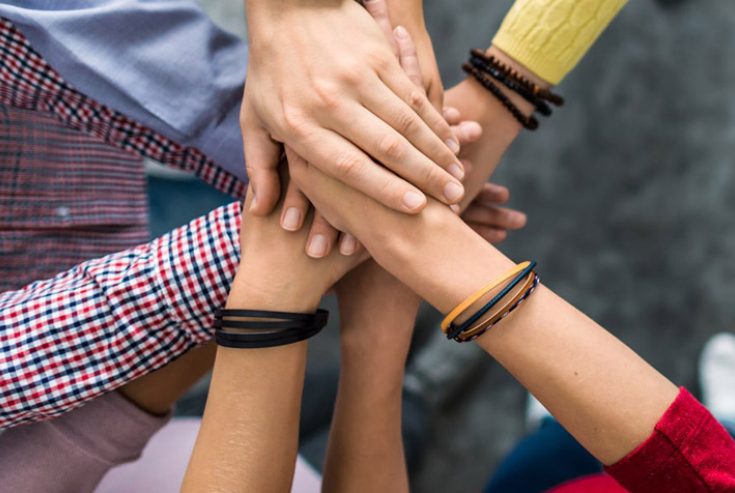DATED: 15 April 2020
At Girlings although our reception areas are closed due to COVID-19, it is business as usual and our Family Law team are here to help, offering initial fixed fee appointments, remotely, either by video link or by telephone appointment.
Due to the current crisis, the courts have had to change the way in which they work to comply with government guidance. New procedures have quickly been put in place and, despite the justice system working hard to ensure hearings can go ahead safely, unfortunately this has led to delays in court proceedings.
Our team are monitoring official guidance in relation to COVID-19 which is dynamic and subject to frequent change. Please find below our answers to common questions and concerns asked by parents and guardians relating to child contact arrangements and Child Arrangements Orders which we hope you will find useful:
- Can I still have contact with my children if they live with the other parent?
- Can I apply for a Child Arrangements Order?
- What is going to happen about my upcoming hearing?
- Do I need to comply with an existing Child Arrangements Order?
- I want to vary an existing Child Arrangements Order but the other co-parent won’t agree, what should I do?
- What if someone in my household, or my child, might have or has COVID-19
- What if I am concerned for my child’s welfare and safety?
- What are the current arrangements with Child Contact Centres?
- What is the guidance in relation to co-parenting and child arrangements during the crisis?
Can I still have contact with my children if they live with the other parent?
The simple answer is yes. On 23rd March 2020, the government published guidance which confirms that where parents do not live in the same household, children under 18 can be moved between their parents’ homes.
The President of the Family Division, Sir Andrew McFarlane, has also issued guidance confirming the above. He has, however, noted that whilst children can be moved between separated parents, it does not mean that the children must be moved between homes.
Whether or not children are to be moved between homes is something that is, ultimately, up to the parents to decide. This decision should be based upon what is in the children’s best interests. This requires an assessment of each parent’s current circumstances, your children’s health, risk of infection and the presence of any recognised vulnerable individuals in each household.
CAFCASS’ has provided guidance encouraging effective co-parenting which is aimed at helping maintain a child’s routine during the pandemic. The essence of this guidance is that parents must realise the importance of working together amicably in order to try and find solutions that are in the best interest of their children and also, the health of those around them. This may not always be possible and you may need the advice of the solicitor to assist you with those communications with the other parent.
Can I apply for a Child Arrangements Order?
Again, the simple answer to this question is yes. However, applications are being dealt with differently during the pandemic due to lack of facilities and the strain being currently experienced in the justice sector.
The government has confirmed that where possible applications should be made online. If you require assistance in drafting and filing such an application it is imperative that you seek specialist family law advice as soon as possible. Please do not hesitate to contact Curtis Wray one of our specialist Family Solicitors.
Should an urgent application be required, guidance states that potential applicants should contact their local court prior to issuing any application.
Where an application is made and it is deemed that the child is safe, the application may be delayed. If the court has concerns relating to the child’s welfare, the case will be heard by the court as soon as is possible.
CAFCASS’ Family Court Advisors, who generally contact the parties involved in legal proceedings prior to the first court hearing, are currently working remotely and it is likely that they will have to discuss cases with individuals over skype or other video link, or by telephone. Whilst this may differ somewhat from a face to face meeting, the advisor will try to make everyone as comfortable as possible.
What is going to happen about my upcoming hearing?
The current position is that hearings will be dealt with remotely either by video link or by a telephone hearing. If you have a hearing listed, you should receive details confirming what action has been taken with respect to your hearing.
Due to the pandemic, hearings are currently being delayed and this is having a knock-on effect upon hearings that are yet to be heard. As such, some hearings that have been listed for a specific date and time are being adjourned. If your hearing has, or is due to be, adjourned, the court should notify you of this. As far as is possible, remote hearings are to be as close in practice as a physical hearing.
If a hearing cannot be heard by video or conducted as a telephone hearing and it cannot be delayed, there is the possibility of a physical hearing being heard at a priority court following the government’s decision to consolidate the work of the courts into fewer buildings.
It is possible that the list of priority courts that are open might change over time in line with updated advice from the government. Details for every court can be found utilising the Court and tribunals finder.
Do I need to comply with an existing Child Arrangements Order?
Guidance has been issued confirming that parties to a Child Arrangements Order (“CAO”) should continue complying with the provision and terms of an existing CAO.
However, it is possible for parents to exercise their parental responsibility and agree that the terms of an existing CAO should be temporarily varied. Any agreement should be recorded in a note, email or text message.
It is critical that both parents work together to enforce the government’s guidance and ensure that their children are aware of this and follow it, for example, by washing their hands for at least 20 seconds regularly.
The key message is this: where Coronavirus restrictions create a need for an existing Order to be varied, the spirit of the Order should nevertheless be delivered by making safe alternative arrangements for the children.
If you have found yourself in a situation where you are struggling to agree any variation to an existing contact arrangement with your co-parent, review the information provided below.
I want to vary an existing Child Arrangements Order but the other co-parent won’t agree, what should I do?
If you have sought to vary an existing Child Arrangements Order (“CAO”) but cannot reach an agreement with the other parent you can exercise your parental responsibility and unilaterally vary the CAO. This, however, can only be done where you are varying the CAO due to having concerns that complying with the current CAO would go against the advice being issued by Public Health England (or Wales).
If these actions are later questioned by the other parent in Family Court, the court will assess whether you have acted reasonably in light of the official advice and your family's circumstances.
The court will expect other appropriate arrangements for contact to be made in order to maintain a child’s regular contact with the other parent. This could include, but is not limited to, utilising FaceTime, WhatsApp Video, Skype, Zoom or simply a telephone.
It is important that the spirit of the Order is delivered by making safe alternative arrangements.
What if someone in my household, or my child, might have or has COVID-19?
If you, your child, or someone in your household has, or might have, COVID-19 and is displaying any of the symptoms listed on the government health advice pages, they would be self-isolating and should not be transferring between households. If you are currently in legal proceedings report this to your Family Court Advisor.
What if I am concerned for my child’s welfare and safety?
Any concerns should be reported to your local authority’s children’s services as soon as possible to ensure that you are safeguarding your child’s welfare. Your local authority has a statutory duty to investigate your concerns.
What are the current arrangements with Child Contact Centres?
Guidance from the National Association of Child Contact Centres (“NACCC”) is, at present, that people should not be attending child contact centres. The Family Courts have suspended making any new orders of contact taking place at contact centres.
Some contact centres are looking at alternative ways to ensure that child contact can continue to take place working creatively with families or by utilising indirect contact. Contact centres should be contacted on an individual basis as each contact centre may have different alternative measures in place.
What is the guidance in relation to co-parenting and child arrangements during the crisis?
CAFCASS has issued the following guidance:
- Give your children information about how to reduce their risk of being infected by the disease in words that they can understand (depending on their age)
- Maintain a sense of routine – this will help your children feel safe and secure
- Children should maintain their usual routine of spending time with each of their parent unless there are justified medical/self-isolation issues
- A Child Arrangements Order should be complied with unless to do so would put your child or others at risk
- If you’re not able to maintain your child’s usual routine, this should be communicated clearly and honestly with your co-parent. If you have difficulty communicating consider using a trusted third party
- Think creatively about how you can help your child stay in touch with their other parent. Skype and FaceTime should be considered
- If court directed contact time is missed think about how this can be made up once restrictions are lifted. Any rearranged time should not be a source of tension or conflict and should always be for the child’s benefit
- Ensure that your children do not hear you discussing any court case or dispute you may be having with your child’s other parent
- Ensure you adhere to the government’s guidance on social distancing
- It is crucial that both parents practice sensible hygiene, such as washing hands more often and for at least 20 seconds. Also ensure that you clean and disinfect regularly touched objects and surfaces
- Encourage your child to catch their coughs and sneezes in a tissue and ensure they comply with the hand washing advice. Make this part of their daily routine.
Contact our Family Law team
If you require any advice or assistance from our Family Law team please contact us. We are continuing to offer initial fixed fee appointments and these are being held remotely, either by video link or by telephone appointment.
We hope you find the general guidance above useful. Please contact a member of our Family Law Team for advice on your individual circumstances.
Sources:
- Government, Her Majesty’s Courts and Tribunals Service (“HMCTS”)
- The President of the Family Division
- the Children and Family Court Advisory Support Service (“CAFCASS”)
- Family Justice Young Person’s Board
Before relying on this commentary please read the Reliance on information posted section in our Terms of Website Use in our Legal section. Please note that specialist advice should be taken in relation to any specific queries and the information above is provided for general information purposes only.










